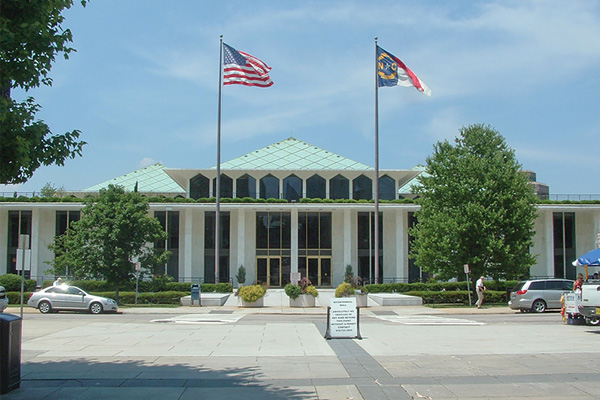In the category of closing the barn door after the horse has bolted, the Greensboro City Council is meeting with the state legislative delegation on Friday, Aug. 25 at 2 p.m.
It’s not an actual meeting, the kind of meeting that the City Council has proposed be required of all of the boards and commissions it appoints, where the people attending the meeting are in the same room at the same time, but a Zoom meeting.
The North Carolina legislature is in the process of wrapping up the session. The state budget is expected to be passed early in September and the 2023 session should adjourned shortly thereafter.
In this session, the Greensboro legislative agenda a list of items that the City Council asked the legislature to pass was no more successful than past legislative agendas despite the fact that Greensboro for the first time has an intergovernmental relations manager to lobby the legislature on behalf of the city and also to provide councilmembers with “talking points” when they speak to legislators.
Greensboro did have the Charter of the City of Greensboro amended over the objection of the Greensboro City Council to create Civil Service Review Board.
When the City Council found out about the Civil Service Review board legislation it had already passed the state House. But before the legislation passed the state Senate and became law, the City Council did pass a resolution in opposition to the creation of the five member board that will have the power to review and overturn demotions, terminations, reductions in pay and other disciplinary actions for city employees. Before the creation of the Civil Service Review Board the final internal appeal by an employee was to the city manager.
A request that Greensboro be allowed to place speed enforcement cameras as a pilot project in designated school zones was left on the legislative agenda despite the fact that the City Council was informed it would take an amendment to the state constitution to make it possible.
Since the Greensboro City Council is made up of eight Democrats and one Republican and the state legislature has veto proof Republican majorities in both the state House and the state Senate, it is no surprise that the Greensboro legislative agenda doesn’t do well in Raleigh.


I would love to be a fly on the wall to hear how this city council can fabricate how they can justify their actions. Just like the Biden situation. It will all be pushed under the rug and the city council will blame others or throw the race card as justification for their action.
I hope this current council continues to get screwed….just like they due the citizens here.
Clowns.
It’s more their shenanigans than their political party. Grifting career local politicians with decades of conflicts of interests and a crumbling public safety department shouldn’t be high on the legislators agenda.
Honey I hate to be the one to inform you but the council is not the one being screwed. I for one hope they rip their heads off and then maybe there will be peace in the land…